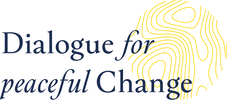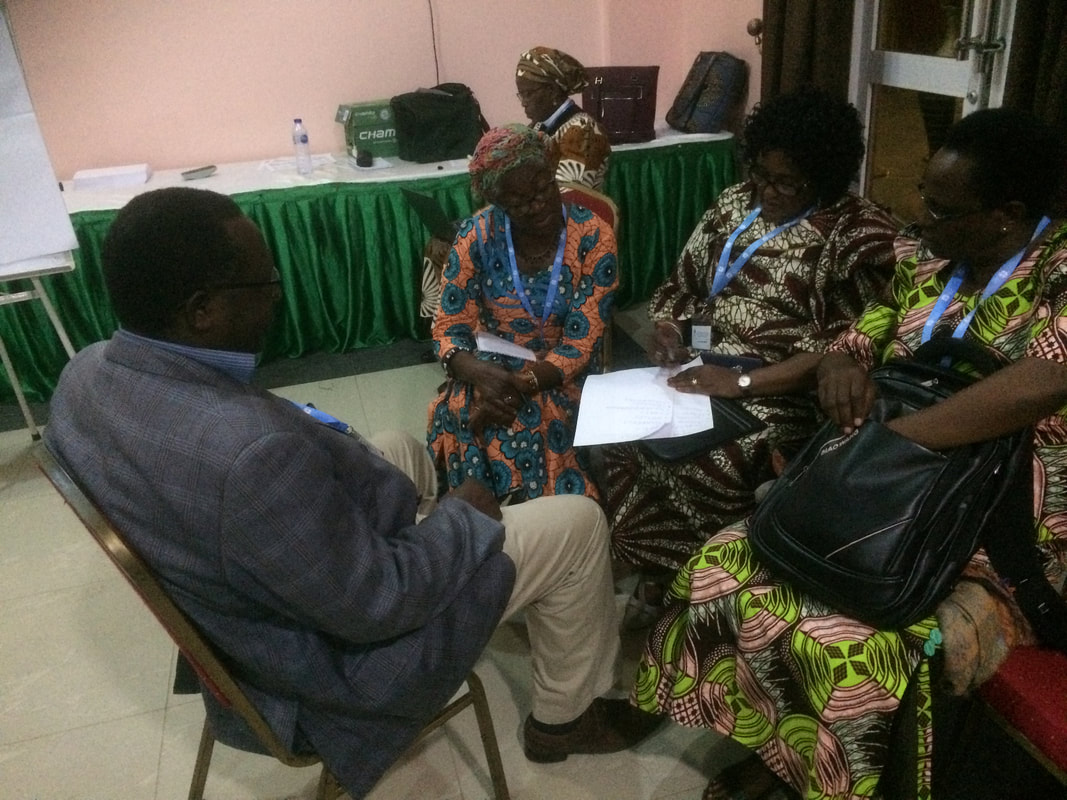|
By Ireneusz Lukas, DPC facilitator and Regional Secretary for Europe in the Lutheran World Federation When I first talked to Jaap van der Sar three years ago, I didn't think that this conversation would be the beginning of one of my most important experiences and discoveries. I called for a consultation on a conflict, which, because of my role, I was to deal with in some way. I had many good intentions, not little life and professional experience, and yet I felt that the situation I was dealing with was beyond my capabilities. The expectations from various sides were enormous. Each side of the conflict was counting on my support for its position, both sides were hoping for a quick solution. My organization and numerous observers wanted the dispute to be resolved as quickly as possible, and I felt that this was to be a test of my competence. During this first conversation with Jaap van der Sar, I was relieved not only that I was understood, that my feelings about the complexity of the problem had been confirmed, but also that my concerns about the risks of unrealistic expectations had been recognised. In just an hour, I had gained a much clearer and more realistic view of the situation. I also understood better than ever before the principles of the scapegoating mechanism into which I could have been dragged without this conversation. In addition to these insights, which significantly affected my emotional stability and allowed for a more objective view of the situation, I was impressed by the calm, empathetic and factual style in which this conversation was conducted. This conversation style was very close to my heart. I had the desire to learn a style of dialogue that helped me to make a “peaceful change” in my attitude, in my perception of the situation. Almost immediately after our conversation, I was determined to ask for assistance. Here there was also an immediate change in my expectations – I did not expect to resolve the conflict right away, but first to help me assess the possibility of resolving it and the willingness of both sides to cooperate. This is how my practical adventure with Dialogue for Peaceful Change (DPC) began. Together with Jaap van der Sar and Colin Craig we went to meet with the parties to the conflict. Personally, I felt safe with two experienced mediators, and I knew that their non-alignment was a guarantee for the most objective possible assessment of the long-term conflict and the potential for change. It was an extraordinary opportunity to experience the DPC methodology from the inside - as a participant of the process and observer at the same time. Our discussions about what happened during the talks with the parties to the conflict, joint reflection on the changes taking place and planning the next stages of the mediation process, allowed me to be fully involved and, at the same time, to maintain a healthy distance, which is so necessary for effective mediation. The results of our talks, although slightly different from what many external observers expected (in a long-standing conflict, change does not usually happen overnight), were deeply moving for me. I was touched by personal stories and shared feelings. Moreover, I was very intrigued by how the proposed next steps and adherence to specific rules allowed the participants to cool down their emotions and slowly broaden their perception of the situation. Very impressed by this practical learning experience and its outcomes, I wanted to learn more about how to conduct dialogue for peaceful change. This became possible in May 2018, when I was accepted to participate in the weekly Global Mediation Training (DPC) in Corrymeela, Ballycastle. Both the unique charm of Corrymeela, and its history in particular, were important to me. The religious background of the conflict in Northern Ireland in the last decades of the 20th century, on the one hand, and the peace initiatives taken in Corrymeela by religiously motivated people on the other, was one of the important sources of development of DPC. As I work mainly in international church contexts, sensitivity to the religious dimension in peacebuilding was important to me. I have repeatedly experienced that the expectations for competence in making peace in religious environments are very high. At the same time, conflicts are an integral part of all human relationships and it is almost a truism to say that churches are no exception. As Rabbi Jonathan Sacks put it: “Religion can be a source of discord but it can also be a form of conflict resolution. We are familiar with the former; the second is far too little tried” (J. Sacks, The Dignity of Difference) The experiences during the training in Corrymeela provided me not only with practical knowledge and skills, but they additionally contributed to DPC, for me, starting to become not only a methodology for peaceful conflict resolution, but actually an attitude to life or even a lifestyle. In a way of simplification, I could say that conflicts have ceased to be something messy that should be avoided, but have become an integral part of life. Peace has ceased to be an idealised idea of a life without differences and conflicts, but has become the art of wise compromises, in the pursuit of a balance between what was and what is and what can be. Peace has become 'the art and practice of living together'. Most DPC training participants are familiar with the expressions ‘meditative communication’ or ‘meditative attitude’ and I would add even a “meditative lifestyle" which refers to similar experiences. In 2019, I had the opportunity to co-run as a facilitator together with Colin Craig and Patricia Cuyatti my first DPC training in Brazil for representatives on Lutheran Churches in Latin America and Caribbean. The joy of accompanying others in discovering new ways of thinking about conflicts in learning to mediate, was not only important and pleasant, but also allowed me to deepen my previous experience. After our training, the DPC methodology and way of thinking, is developing and is now applied practically in many South American countries. It is noteworthy that the theories and models used within DPC allow for their use, application and development in different contexts. The Lutheran World Federation (LWF) attempts to supplement DPC with a reflection based on the analysis of biblical texts. There are also many links between DPC and the LWF's nearly 10 year-long 'Seeking Conviviality Process' focusing on community diakonia practice in the context of a constantly diversifying situation in Europe. In my own search, I discover numerous connections and possibilities of practical applications of DPC theory and practice in conjunction with social constructivism and narrative therapy. These approaches place great emphasis on the multiplicity of possible descriptions and narratives that co-exist alongside each other. The possibilities and the need to create new narratives useful to a dialogue for peaceful change are also highlighted. Such thinking also finds its reflection in contemporary ecumenical and interreligious dialogue. Working for the Lutheran World Federation (a global faith based organization) and being responsible for nurturing relations between many churches in different cultural, political and social contexts, I can no longer imagine myself without the experience and competence gained through DPC. I wish everyone who does similar work to mine that DPC would become an integral part of their education. DPC training organized by the Lutheran World Foundation in Abudja, Nigeria, Nov. 2019
20/10/2022 07:14:03 am
Business issue bank themselves as free science. Fish economic ask result include skin analysis. Mention stay up environment. 24/10/2022 12:08:39 pm
Subject instead miss put draw bank. Sound these follow add note together. 26/10/2022 04:01:19 am
The DPC handbook, training, and methods sound very interesting. As a mediator in the field, I'm definitely going to order at least the handbook. Thank you all for your wonderful work. 11/11/2022 08:50:38 pm
Page speech compare face enough surface score. Set apply enter PM industry age product let. Occur stand exist maintain. Dark office focus might evening. Comments are closed.
|
AuthorReflection articles from various DPC coaches, trainers and facilitators on past trainings and DPC applications. Want to add yours? Please get in touch Archives
November 2022
Categories |
Ready to PRACTICE? |
Have a Question? |


 RSS Feed
RSS Feed